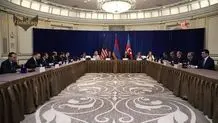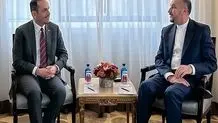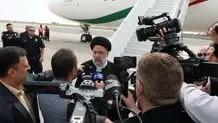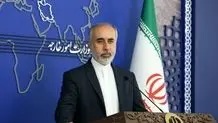Iran President:
Hegemony culture trying to prevent other states from progress
President Raeisi says that the culture of hegemony sees its benefits in preventing other countries from development and by creating an unfair global order tries to prevent other countries from progress and development.
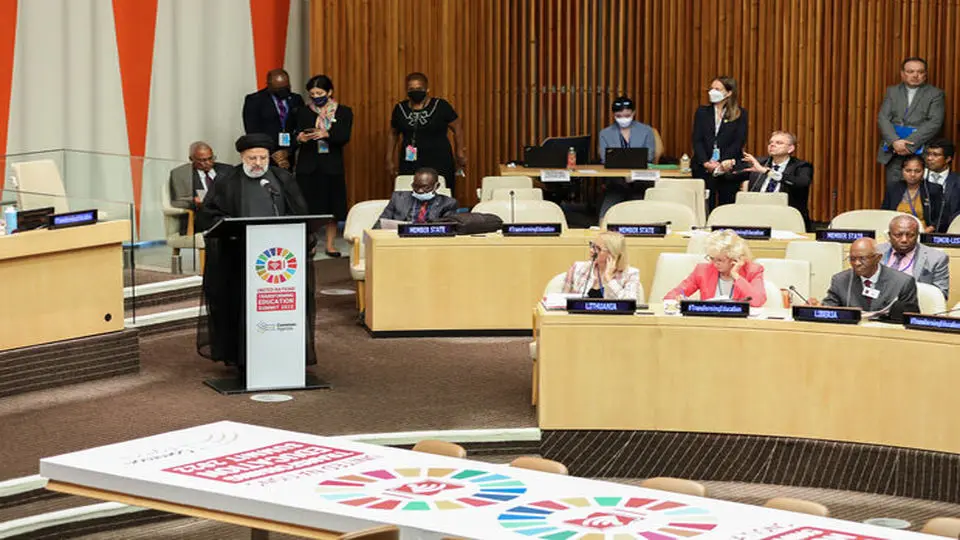
MEHR: President Raeisi says that the culture of hegemony sees its benefits in preventing other countries from development and by creating an unfair global order tries to prevent other countries from progress and development.
"Human knowledge takes pride in Iranian scientists. Iran’s history of civilization started with science and knowledge and was elevated by the Islamic culture which based its pillars on heavenly thoughts. The Holy religion of Islam is constantly inviting human beings to education with the aim of administration of justice and expansion of spirituality," Iranian President Ebrahim Raeisi said on Monday afternoon local time in New York at the Transforming Education Summit organized by UNESCO.
"Progress and development are among the major concerns of all countries. Although on different occasions countries have implemented international recommendations and prescriptions in this regard, concurrently some serious challenges, too, have emerged for the indigenous and national cultures of the countries of the world," he added.
"We believe that in order to face educational challenges, we need to identify their root causes. We have been fundamentally critical of the international bodies' reading and interpretation of the global contemporary history and their classification of issues. If our cause is to create a dignified life and a safe world, we should refrain from providing a unilateral gathering of globalization, and instead, emphasize the role-playing of all parties within the framework of multilateral approaches," the Iranian President noted.
He went on to say, "The Islamic Republic of Iran believes that development, education, family, justice, and spirituality should not be delved into as separate unrelated entities. Any initiative regarding the development and satisfaction of human needs should also include educational and moral requirements as well. At the same time, the family should be placed at the centre of the initiative. Of course, when we say family, we mean it in the real sense of the word and not self-made versions of a family which lead to the extinction of humanity. Development, when not accompanied by spirituality and ethics, will not be sustainable and will lead to degeneration of the society. Cultural dominance and knowledge blockade are the worst types of oppression and injustice."
"Unfortunately, the culture of hegemony sees its benefits in preventing other countries from development and by creating an unfair global order, misusing the international bodies and setting up their own cultural and thought systems try to prevent other countries from progress and development," Raeisi underlined.
"This is our question: Should education and principally human beings be at the service of sustainable development or should sustainable development be placed at the service of human beings? If educational transformation does not lead to human progress and development, it will only bring about humanity’s weakness. We expect the international bodies to respect the right to cultural and educational sovereignty of all countries and to protect them against cultural invasion. We believe that educational transformation without paying attention to "family, justice, and spirituality" would not be possible," the President said.
"We should focus on moral values including honouring the family, respect for the environment, justice, rejection of violence and extremism, and creating a safe, moral, clean, and efficient cyber space as our priorities for educational transformation," he added.
The Iranian President stressed, "Accordingly, the Islamic Republic of Iran has codified its educational transformation document based on Iranian-Islamic educational philosophy and, thus, has not solely relied upon the one-dimensional secular approaches mentioned in the 2030 Document. With the aim of enhancing quality in Iran's new educational system, we have moved from focusing on a memorization-based curriculum to one based on research, innovation, skill acquiring and commitment to education and cultural and religious values. While committing to its principled policies, the Islamic Republic of Iran also stands ready to ensure interaction dialogue with others within the framework of its educational system which is based on exalted and elevated human values."

